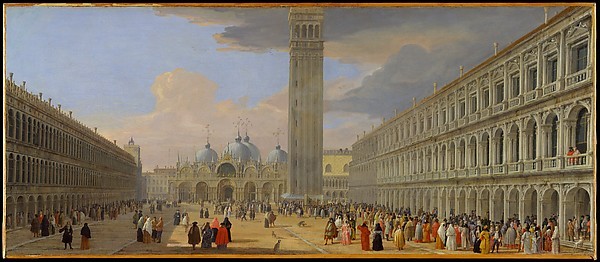Romance and other experiences while abroad
Many noblemen found themselves “befriending” women (espeically prostitutes) while in Italy. Despite the threat of venereal diseases to their livelihoods and ability to produce an heir1, some men found themselves returning to Italy for such liaisons after their Grand Tour had ended. Venice in particular was well known for its prostitution and the amount of men who returned for their mistresses. “One of the fourth Earl of Chesterfield’s brothers ‘spent a great deal of money on a Venetian woman, whom he thought in love with him.” 2
Another man called, “George Lyttleton set off for Italy in 1729 with a warning from his father against ‘grapes, new wine, and pretty women’. David Mallet bragged of having ‘lain with a Sovereign Princess in Italy’”3. Italy and the whole of Europe became an escape for many British nobles who wished the escape the pressures of British society. Whether it was an escape to a mistress or an elopement, British tourists made their love for Europe, especially Italy, very clear. “Lord Euston, the son of the second Duke of Grafton, eloped to Italy in 1744 with a Miss Nevill ‘of a very ancient family in Lincolnshire, with eleven thousand pounds for her fortune...'”4 Homosexuality was persecuted swiftly and “savagely”5 in northern Europe while in the south it was be tolerated at times. Sometimes male prostitutes would be offered along with female ones. Many nobles looked down upon the local women, limiting their interactions with them to the brothel. Nevertheless, there are stories of men falling deeply in love with local girls and giving up their fortunes to stay and be with their new lovers.
As a noble one did not only have access to the best food and women, but also the best of society. British nobility did mix with the Italian upper class. “British tourists in Italy were often presented to the Pope, the Kings of Naples and Sardinia, the Grand Duke of Tuscany, the Duke of Parma and Modena and the Governor of Milan, but their courts did not dominate the pastimes of British tourists to the peninsula, with the exception of the King of Sardinia’s court at Turin.”6 Since many British nobles saw travel as a way to escape court life, some were uninterested in seeing what Italian court life was like. Those who did were pleasantly surprised and seemed to enjoy themselves immensely.
In court society aristocratic tourists could expect to be treated well. They would often dine at court, and would be permitted to attend court functions, particularly balls and royal hunting parties. Additionally, they would mix in a society of ministers and diplomats and have entrées arranged by envoys. These activities were regarded as a key component of the social education of Grand Tourists.7 The Italian court lifestyle, in select cities, became a tourist destination for some.
[1] Jeremy Black, The British and the Grand Tour (Routledge Revivals), Routledge Revivals (Taylor and Francis, 2010), 77
[2] Ibid.
[3] Ibid.
[4] Ibid.
[5] Ibid., 78.
[6] Ibid., 114.
[7] Ibid.
